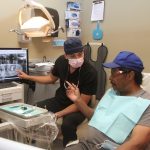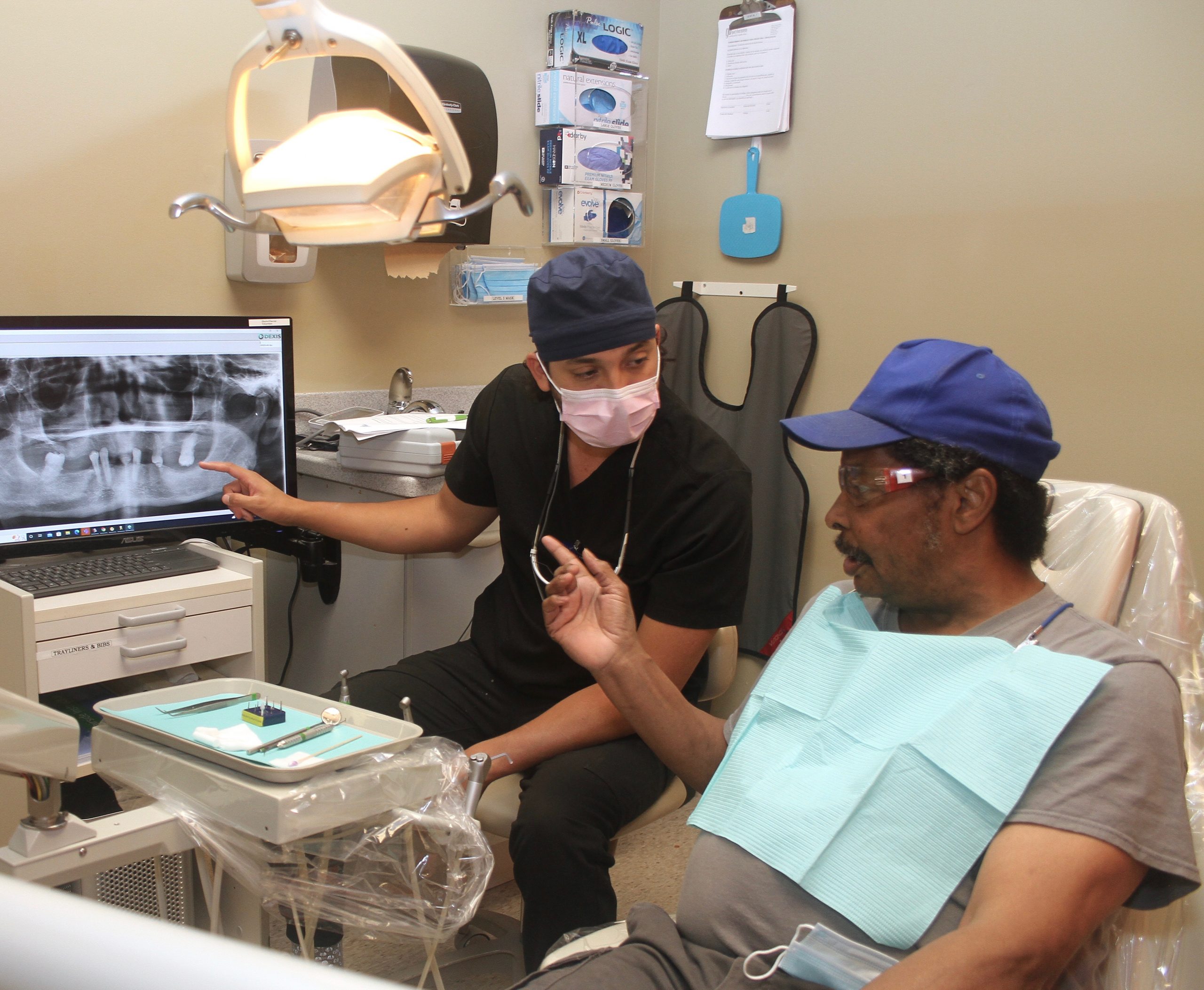Dental school’s Victors for Veterans Program expands its free care for Michigan veterans7 min read
Ann Arbor, Mich., Nov. 10, 2022 – The number of Michigan military veterans receiving free dental care through the University of Michigan School of Dentistry increased again this year with the addition of a third clinic location dedicated to that purpose.
Dental students and faculty are now treating veterans at the Gary Burstein Community Health Clinic in Pontiac. Treatment began there in May as part of the school’s Victors for Veterans Program, or V4V. The program was established in 2012 to serve veterans in the Traverse City and Gaylord areas of northern Michigan. A second clinic was added two years ago at the VINA Community Dental Center in Brighton.
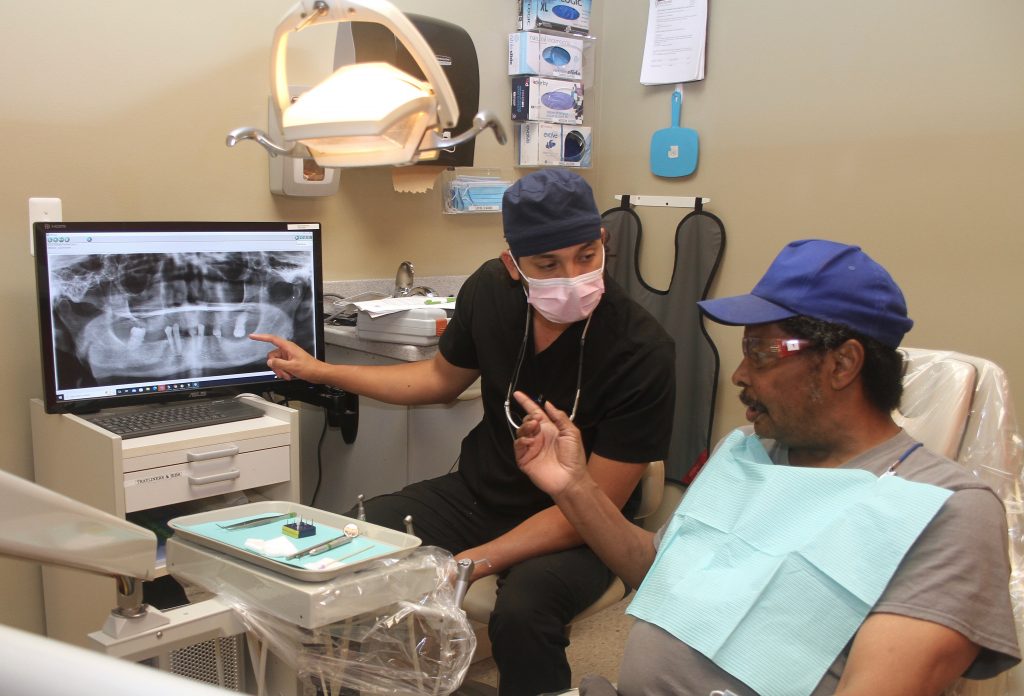
The V4V program provides comprehensive care to disabled, homeless or uninsured veterans who have incomes at or below 200 percent of federal poverty guidelines. Dental students, supervised by faculty and volunteer dentists from around the state, are assigned or volunteer for rotations at the V4V clinics as part of their dental school curriculum.
The high demand for dental care among veterans is a long-standing problem because the healthcare provided to veterans by the U.S. Department of Veterans Affairs does not include dental exams and treatment. Homeless and low-income veterans often cannot afford dental care, which means many have serious dental conditions that have gone untreated for long periods of time.
Dental school faculty member Dr. Howard Hamerink, Associate Director of Community-Based Collaborative Care and Education and the V4V program director, said veterans are a complex, special-needs population – medically, emotionally, physically and socially. Their significant dental needs are often complicated by chronic pain, post-traumatic stress syndrome and addiction issues.
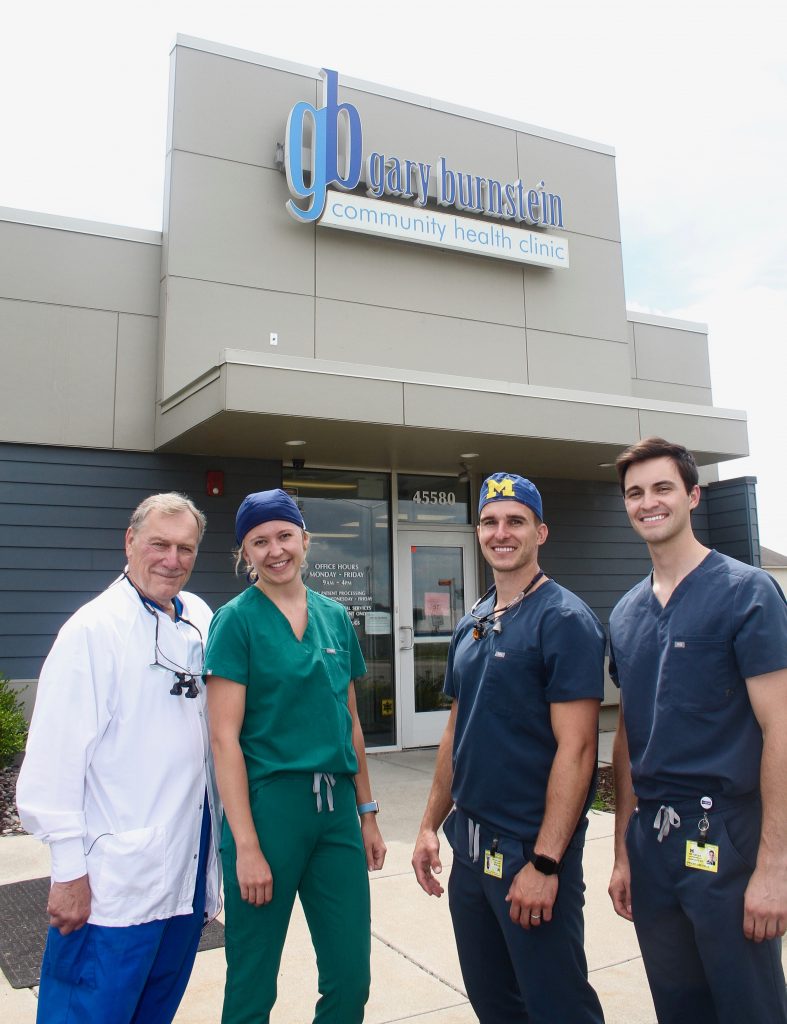
The importance of the V4V program is that it not only serves a very important health need for veterans, but it also benefits the education of dental students. “The beauty of the V4V experience for our students is, first, you are dealing with significantly unserved people. Veterans are not under-served. They are unserved, period. They would not get this service any other place,” Hamerink said. “Second, they are a special-needs population. They have a lot of systemic medical and mental problems. Third, from the student perspective, they are dealing with patients who have some very difficult treatment needs. One of the students at the new Pontiac clinic recently was doing a very complicated procedure called a bilateral mandibular tori removal. The chances of the student ever doing that at the dental school at the pre-doc level is zero.”
Rodrigo Rangel, a fourth-year dental student, was among those treating veterans at the new Pontiac clinic last summer. Regardless of whether their cases were complex or relatively easy, he said the veterans were excellent patients who readily expressed their gratitude for the dental care. Most had an excellent sense of humor that made appointments enjoyable. “Not only are they grateful and expressive of this, they are also among the most understanding and courteous patients I have had the pleasure of treating,” he said. “Handshakes and smiles were given at the end of every appointment. One patient asked me to write down my name so that he could tell his wife and friends about who restored his smile because it is ‘better than it ever was.’ ”
“The experience was great,” Rangel said. “I was happy to be able to give back to a community that dedicated their lives to serving us all. I am very grateful for having been a part of this experience and plan to continue volunteering my time to veterans in the future.”
The new connection to the Gary Burnstein Free Clinic in Pontiac grew out of a request from the clinic after it worked with a group of dental students to create a Saturday clinic there to treat the homeless who were not necessarily veterans. That connection to the dental school evolved into adding the V4V program to the Burnstein clinic, a longtime and well-known community service named after the late cardiologist who began providing free healthcare to the homeless in Pontiac in 1997.
The Burnstein staff recruits veterans and make sure they have transportation and other details necessary for their dental appointments. About six dental students, along with faculty and volunteer adjunct dentists, staff the dental clinic two days a month on alternating Thursdays.
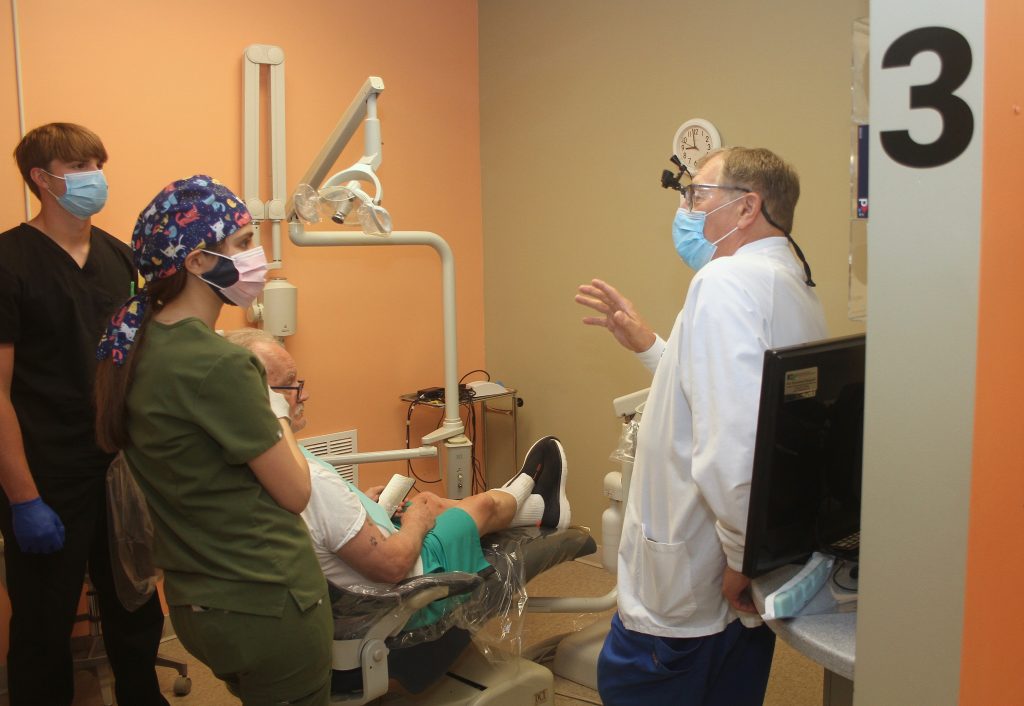
Hamerink estimated last year that the V4V program, since its inception in 2012, had provided free comprehensive care valued at about $1.7 million to more than 480 veterans statewide. Both those numbers have increased with the addition of the clinics in Brighton and Pontiac. The number of students who volunteer with the program is growing and now represents 10 percent of all DDS students, who must contribute their time and skills above and beyond their many other challenging academic requirements.
Hamerink said the three V4V clinics have a steady supply of students and adjunct faculty who volunteer their time, so the staffing is inexpensive, but the challenge, particularly for the newest clinic in Pontiac, is to find funding for supplies, material and equipment. “Donors are continually needed to help with those costs,” Hamerink said. “The goal is to build a sustainable model so we aren’t constantly worrying about maintaining this extremely important service to veterans.”
To support the V4V program, visit the giving site here.
For more information or to schedule an appointment for a veteran, here is the contact information for the Pontiac and Brighton Victors for Veterans clinics:
• Gary Burnstein Clinic, 45580 Woodward Avenue, Pontiac, MI 48341; Patient Care Coordinator Paul Lyons: phone (248) 309-3752 or email [email protected]
• Vina Community Clinic, 400 E. Grand River, Brighton, MI 48116; Patient Care Coordinator Toni Nerowski: phone (810) 844-0240 or email office@vinadentalorg
###
The University of Michigan School of Dentistry is one of the nation’s leading dental schools engaged in oral healthcare education, research, patient care and community service. General dental care clinics and specialty clinics providing advanced treatment enable the school to offer dental services and programs to patients throughout Michigan. Classroom and clinic instruction prepare future dentists, dental specialists and dental hygienists for practice in private offices, hospitals, academia and public agencies. Research seeks to discover and apply new knowledge that can help patients worldwide. For more information about the School of Dentistry, visit us on the Web at: www.dent.umich.edu. Contact: Lynn Monson, associate director of communications, at [email protected], or (734) 615-1971.

